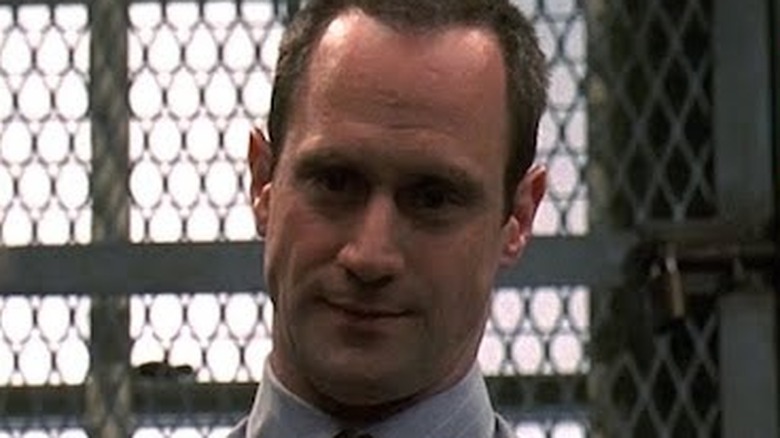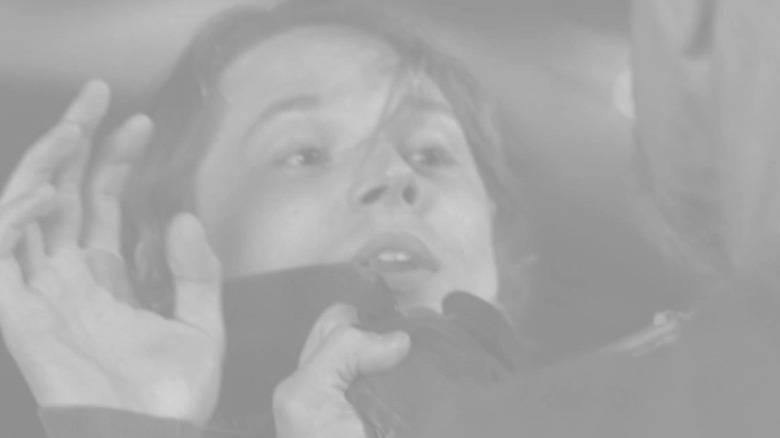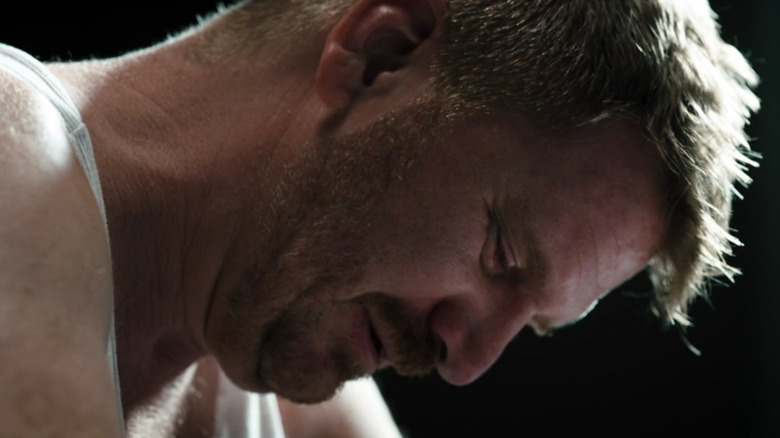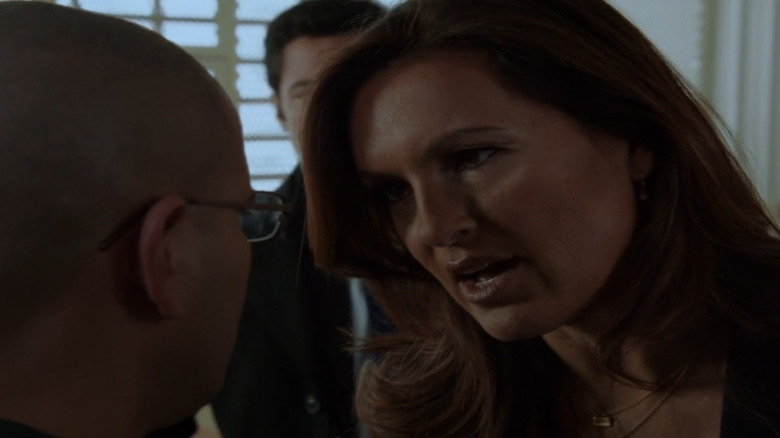Here's What Law & Order Gets Wrong About Interrogations
In the criminal justice system, there are vast differences between how real-life law enforcement works, and how it is portrayed on TV. This is one of those stories. And if the "Law & Order" bing-bong sound isn't playing in your head right now, then you might not be all that familiar with the show.
All joking aside, NBC has taken a lot of creative liberties with their crime dramas over the years. And the "Law & Order" franchise is no exception. Many of the factual errors on the show have been exhaustively documented by websites like Movie Mistakes and discussed across social media. It's no secret that what we see on TV and what actually happens in the real world are usually two very different things. When it comes to how interrogations are performed on "Law & Order," that's especially true. We'll discuss the differences in more detail below, but you may be surprised by what you learn.
Most cops take notes
According to Police 1, detectives in the "Law & Order" universe, including, but not limited to Olivia Benson (Mariska Hargitay) and Elliot Stabler (Christopher Meloni), don't take notepads into their interrogations nearly as often as they should — which is all the time, basically. Sure, lots of interrogations are also recorded with video and audio, but it also helps to take notes so that the cops can quickly and easily reference specific parts of a suspect's testimony.
Just think about it: most interrogations take a long time (more on that later) — much longer than they are portrayed on TV. The real-life justice system crawls along at a snail's pace, and not having something on paper to easily reference would make that process even slower. But a television show taking time to film a detective performing a full interrogation, which includes jotting down notes and all, doesn't seem too entertaining. So for the sake of the viewer's pleasure, the tedious process of taking notes during an investigation is left out. But it's a very real and very essential part of the process.
Unethical tactics aren't (technically) allowed
The legal eagles over at FindLaw have done the world a public service by providing a clear and concise FAQ about what is and is not allowed in a real interrogation. What's not allowed? Roughing up a perp the way viewers often see on TV crime dramas. Legally, "police are prohibited from using physical or psychological coercion when conducting police interrogations" because prosecutors can get that confession thrown out in court.
But it's not always so cut and dry, contrary to what shows like "Law & Order" portray. The things officers are allowed to do during an interrogation might come off as shocking to some people. While cops can't physically assault a suspect or use other torture tactics (like sleep deprivation, extreme heat/cold, etc.) to coerce a confession, they can psychologically break a suspect with lies and tricks in order to push them to confess.
Real interrogations take hours
All of these interrogation tactics are covered by "The Reid Technique," and it's so ubiquitous within the law enforcement profession that they teach it in seminars all across the country (via The New Yorker). Police officers are allowed to coerce confessions by essentially holding a suspect hostage and putting them through hours and hours of the interrogation process. They are trained to deduce through a suspect's body language whether they're guilty or not, even though such techniques aren't supported by legitimate evidence, per Popular Science.
Some of that process may include hours of lying about evidence in the investigation which proves their guilt, like insisting they failed a polygraph (even though polygraphs aren't admissible in court) or slowly tricking the suspect into thinking that their inevitable charges won't be so bad, so it's no big deal to confess. On the show, though, these confessions are portrayed as only taking a few minutes of straightforward, good-cop questioning without any manipulation or coercion. And this is a big part of the problem with the U.S. justice system for one very specific and heartbreaking reason.
False confessions are way more frequent than what you see on TV
The advocacy group behind FalseConfessions.org is on a mission to educate the general public about how prevalent false confessions are in the hopes of reforming the system. It's a seriously underreported problem, especially in marginalized communities. But if you're a faithful "Law & Order" fan, you might be tricked into believing that it's incredibly rare.
Between the most popular series in the franchise, "Law & Order" and "Law & Order: SVU," there are over 1,000 episodes. According to crime statistics, the actual rate of false confessions is somewhere between 15% and 25%. So you'd expect that there would be somewhere between 150-250 episodes featuring a false confession as a part of the interrogation process. While one episode of "Law & Order: SVU" does address the issue, episodes like it are unfortunately few and far between among the franchises. While it's understandable that certain details and portrayals of police work need to be altered to fit into a neat 44-minute episode, it's also a missed opportunity to help educate the general public on how the justice system actually works.




